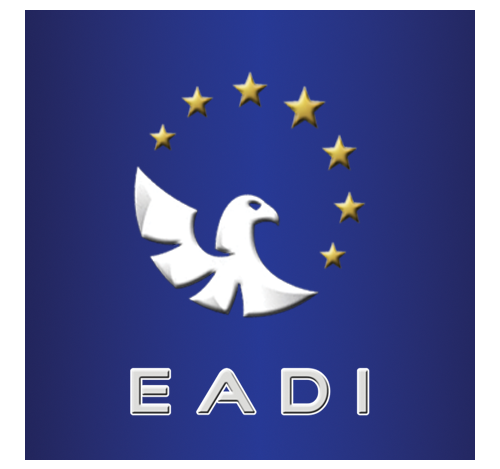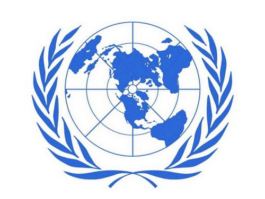
Statute
I. GENERAL DECISIONS
§1
The club bears the name European Alliance “Diplomacy International” e.V.(“Diplomacy International”) is a centralized international organization and is named “Alliance” in the statute below.The Alliance uses the above legally protected name and logo.
§2
The Alliance is based in Oedheim; Baden Württemberg; Germany.The Alliance has been registered in the register of associations of the district court.
§3
The Alliance is entitled to open branches in other countries, The Alliance can be found in other international organizations, associations andBecome a member of the European Parliament and the United Nations as a charitable organization.
II. PURPOSES AND THEIR REALIZATION
§4
PROFIT
1. The Alliance exclusively and directly pursues charitable and benevolent purposes within the meaning of the section “Tax-privileged Purposes” of the Tax Code.
2. The association is selflessly active, it pursues no self-economic purposes.
3. The resources of the Alliance may only be used for statutory purposes. The members receive no benefits from the funds of the Alliance.
4. No person may be favored by expenses that are foreign to the purposes of the Alliance or by disproportionately high remuneration.
5. Grants to the Alliance may be used only for the prescribed charitable purposes.
§5
ALLIANCE PURPOSES
1. Promotion of international sentiment, tolerance, peace efforts, democratic governance and the concept of international understanding.
2. Promotion of science and research, especially in the field of environmental protection, health and poverty alleviation
3. Promotion of development cooperation
4. Promotion of public health
5. Promotion of education, education and training
6. Promote assistance to political, racial or religious persecutees7. Promoting international economic cooperation serving the general purpose and implementation of the Alliance’s statutes.8. Promotion of monument protection and monument preservation;
§6
The purpose of the statutes is realized in particular by:
1. Initiate and participate in existing programs that pursue similar purposes to the Alliance Statutes, with particular emphasis on cooperation between EU and UN legislative and executive bodies
– promoting activities aimed at maintaining peace, especially under Consideration of cooperation with representatives of the Diplomatic and Consular Corps
– Promotion of tolerance, freedom of expression and protection of personal rights
-Support the dialogue between races, religions and ethnic groups.
– Mediation and maintenance of dialogue between different parties in crisis or conflict situations.
– Initiate and promote Scientific, Education and Cultural Projects, as well as Community Economic Cooperation.
– Promotion and preparation of relief and development projects with particular attention to combating poverty, improving health and education
– Carrying out relief actions for the benefit of vulnerable groups and persons, as well as logistical support and advice on the implementation of similar activities.
– Collaboration with organizations that have similar purposes.
– Organization of international events, congresses, conferences and meetings
– Promotion of engagement in the Alliance Statutes similar purposes in the form of honorary awards
– To promote education based on moral and ethnic values
2. The Alliance may appoint other organizations and employ staff to achieve its objectives.
III. RIGHTS AND OBLIGATIONS OF THE MEMBERS
§7
The Alliance has the following types of membership:
1. Founding members
2. Ordinary members
3. Supporting members
4. Honorary members
§8
Founding members are natural and legal persons who are registered in the founding list.
§9
Full members are: Legal and natural persons who feel connected to Alliance purposes.
§10
Supporting members are legal entities and natural persons who only want to support Alliance purposes through material or advisory contributions.
§11
1. The general assembly may award an honorary membership at the request of the board.
2. The board can directly confer honorary membership to the diplomats and consuls, honorary consuls, as well as to enamel members Diplomatic and Consular Corps
§12
1. A member of the Alliance may become any natural or legal person who supports the purposes and purposes of the Alliance. The admission takes place on the basis of a written request to the executive committee. The board decides on the application for membership of the Alliance.
2. Membership begins with the awarding of the membership certificate.
§13
The membership expires through:
1. The voluntary resignation, which must be sent in writing to the Executive Board.
2. Exclusion on the grounds of acts contrary to the statutes, the general meeting or decisions of the board.
3. Death of the member or dissolution of the legal person.In the event of exclusion, the affected member can appeal within 14 days of receipt of the Board decision. The General Assembly decides on the objection whose decision is final.
§14
The members have the right:
1. To vote and to be elected for each Alliance office
2. Make requests to improve the Alliance’s activities
3. To actively participate in the implementation of Alliance purposes
4. To use all objects and services of the Alliance, within the framework of the alliance order adopted by the Executive Board.Supporting members have no active and passive voting rights.
§15
The members are obliged:
1. The statutes, decisions of the general meeting and the board to follow
2. To support the realization of Alliance purposes
3. To make the specified contributions
§16
Supporting, founding and honorary members are exempted from paying contributions and filing a registration form.
§17
Legal persons become members in the membership by authorized persons represented by their management.
Natural persons who are members of the Alliance participate through personal engagement in the Alliance activities.
IV. ORGANS OF ALLIANCE
§18
Organs of the Alliance are:
1. General Assembly
2. Board
3. Diplomatic council
4. Examination Board
§19
DURATION
The term of office of all elected bodies lasts 5 years. The organs remain established and functionally in office until new ones are elected.
§20
VOTING RIGHTS
1. The decisions of all Alliance organs are, unless the statute otherwiserequires, with a simple majority vote, a 50% attendance of the voting members.
2. Amendments to the Constitution, removal of the Board and dissolution of the Alliance Community, can only be voted at a general meeting with a majority of 75% and one vote presence of voting members.
§21
GENERAL ASSEMBLY
The highest Alliance organ is the General Assembly.
1. The general meeting is to be convened by registered letter every 2 years or by e-mail from the board. The notice to attend the General Assembly should be sent 21 days in advance and must include the date, venue and agenda.The members’ meeting obligatorily leads the chairman or a person authorized by him.
2. At the request of at least 25% of the members, the board must call an extraordinary general meeting.
3. The General Assembly is in particular for the resolution in the following Affairs responsible:- Refer to Alliance Development Guidelines- Inclusion of the reports of the board and the board of examiners- Dismissal of the Management Board and election of the new Management Board and the Examination Board -Amendments to the statutes- Determining the amount of membership fees- Examination of the objections and complaints of the members- Dissolution of the Alliance
4. Each founding member receives 3 votes.
5. A protocol has to be prepared by each general assembly, which has been approved by the The Secretary and the chairman or his representative.
§22
THE BOARD
1. The board consists of 3 to 9 members, of which one chairman, the first andthe second substitute will be elected.
2. The chairman is selected by the general assembly. Deputy Chairmen and members of the Executive Board are appointed by the General Assembly at the request of the Chairman.
3. The board has the following competences:- Representation of the Alliance to the outside, as well as acts in his name- Ongoing alliances management affairs – to exercise other matters provided for in the Articles of Association or Alliance Law- Inclusion of new members- Appointment of the General Assembly- decision-making on founding or participation in other organizations
4. The Board submits nominations to the members of the Diplomatic Council and appoints the committees needed for the Alliance’s activities.
5. The board appoints a committee to award the awards, as well as the committees needed for Alliance activities.
6. The board exercises its actions through the office, which is represented by a manager.
7.The alliance is represented by the 1-chair alone or by both vice-chairs together.
8. In the internal relationship, the two deputy chairmen may act only if the 1 chairman is prevented.
9. At the request of the chairman, the board appoints / dismisses the director and establishes the rules of procedure of the office
§23
DIPLOMATIC COUNCIL
1. The Diplomatic Council is an advisory body that proposes and evaluates Alliance activities and acts as a honorary organ at solemn events.
2. The Diplomatic Council consists of 5 – 9 members.
3. If necessary, the Diplomatic Council can be expanded.
4. The members of the Diplomatic Council shall be called to office upon the request of the Board.
§24
EXAMINATION COMMITTEE
1. The Examination Board consists of 3-5 members appointed by the General Assembly.
2. The members of the examination board may not belong to the board and the diplomatic council.
3. The board of examiners will be chaired by a chairperson who will be appointed by the members at the first meeting of the Board of Trustees.
4. The testing commission evaluates the activities of the board of directors cyclically and submits reports prepared from them to the general meeting at least every two years.
5. The board of examiners submits proposals for the discharge of the board at the general meeting.
6. In the event of the departure of members of the Examination Board during their term of office or death, the institution may appoint new members. However, no more than 50% of the Commission may be replaced on this journey.
§25
1. The Alliance assets arise from membership fees, donations, grants, income from own work, as well as income from public endowments.
2. The capital and assets of the Alliance are managed by the Board.
§26
1. The dissolution of the Alliance can only be decided upon in a general meeting convened for this purpose in accordance with § 21
2. The liquidation is the responsibility of the Board, which remains in office until the end of this function.
3. In the event of the dissolution of the Alliance or the abolition of tax-privileged purposes, the assets of the Association shall fall to a public-law corporation or a tax-privileged corporation, which shall use it directly and exclusively for the support of past Alliance charitable purposes.
c, den 4.12.2018

